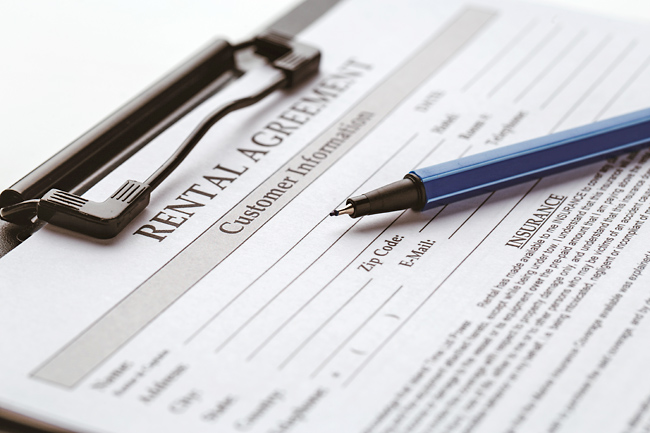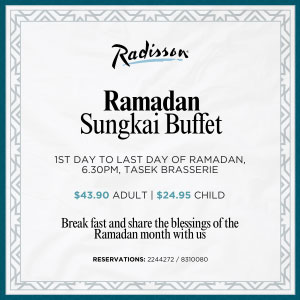Yusof Halim & Partners Law Office recently provided the Bulletin with valuable insights into tenancy laws in Brunei Darussalam, focusing on the rights and responsibilities of property owners and tenants. The discussion explored key legal terms and addressed common issues surrounding rental agreements, tenant rights, and property ownership.
TYPES OF TENANCY ARRANGEMENTS
The law office highlighted three primary types of tenancy arrangements recognised in Brunei:
Lease (Pajakan)
Refers to renting land or property for a period exceeding seven years. Such agreements must be registered at the Land Office and recorded under the landowner’s title.
Tenancy Agreement (Penyewaan)
Applies to rental periods between one and seven years, commonly used for residential and commercial properties.
Temporary Occupation License (TOL)
A short-term rental agreement issued by the government, typically renewed annually. TOL agreements grant temporary occupancy rights without conferring permanent ownership and must be renewed yearly.
RIGHTS OF PROPERTY OWNERS AND TENANTS
A key issue addressed was whether property owners have unrestricted access to rented premises during tenancy periods. The law office clarified that once tenants pay their rent, the property effectively becomes their private space for the duration of the agreement.
Owners may only enter for specific purposes, such as repairs requested by tenants, and must provide proper notice. Unauthorised entry is considered trespassing, and tenants have the right to report such incidents to authorities.
Additionally, landlords cannot unilaterally change locks or restrict tenant access. Such actions require a court order, and failure to comply could lead to legal repercussions, including financial liabilities for any losses incurred by the tenant.


HANDLING NON-PAYMENT OF RENT
When tenants fail to meet their rental obligations, landlords must adhere to legal procedures. The law office emphasised that self-help measures like locking tenants out or evicting them without due process are prohibited. Landlords are advised to seek court intervention to resolve disputes and reclaim possession of their property.
SELLING PROPERTY WITH TENANTS
In cases where property owners sell their properties during an active tenancy, the new owner must honour the existing rental agreement. Tenants retain their right to remain in the property until the contract expires unless an agreement is reached to terminate the tenancy.
For example, if a tenant’s agreement runs from January to December and the property is sold in August, the tenant has the legal right to stay until December unless otherwise stipulated. Notice periods for termination typically range from one to three months, depending on the contract.
MAINTENANCE AND RESPONSIBILITIES
The discussion also addressed property maintenance and tenant responsibilities. Landlords are generally responsible for structural repairs and ensuring the property is habitable.
Tenants, on the other hand, are expected to maintain cleanliness and promptly report damages. For furnished properties, tenants are responsible for keeping furniture and appliances in good condition, barring normal wear and tear.
Upon vacating, tenants must leave the property in its original condition, or they risk deductions from their security deposit.
SECURITY DEPOSITS AND MISUSE
Security deposits are often a source of contention in rental agreements. The law office explained that these deposits are intended to cover damages or restore the property to its original condition – not to offset unpaid rent.
However, it is not uncommon for tenants to misuse their deposits by withholding rent for the final months of their tenancy, assuming the deposit will cover the shortfall.
This practice is not permissible under Brunei law, and landlords can issue formal notices to tenants reminding them of their obligations.
RENOVATIONS AND ALTERATIONS
Tenants are generally allowed to make minor modifications that do not affect the property’s structure, provided they have the landlord’s consent.
Structural changes require explicit approval to ensure safety and compliance with regulations.
For commercial properties, landlords may include clauses specifying whether tenants must remove renovations or compensate for them at the end of the tenancy.
A COMPARATIVE LOOK
The discussion also touched on rental practices in other countries, such as the United States of America (USA), noting similarities in the handling of security deposits. In both Brunei and the USA, security deposits are meant to cover damages or unpaid rent.
Tenants are also expected to return the property in good condition upon vacating.
In Brunei, misuse of security deposits to cover unpaid rent is more common, despite being against the terms of most agreements. Landlords have the right to take legal action in such cases.
ENSURING CLARITY AND COMPLIANCE
The law office concluded by emphasising the importance of clear, well-drafted tenancy agreements. Both landlords and tenants should understand their rights and obligations to minimise disputes and ensure smooth rental experiences.
As Brunei continues to grow, fostering transparent and respectful landlord-tenant relationships is essential in building a harmonious rental ecosystem. – Rizal Faisal





